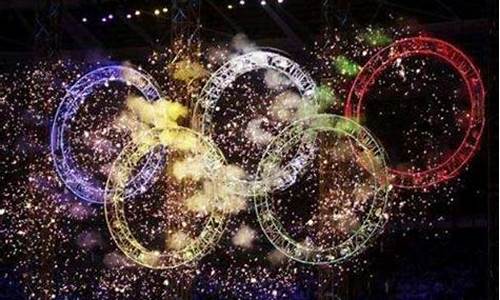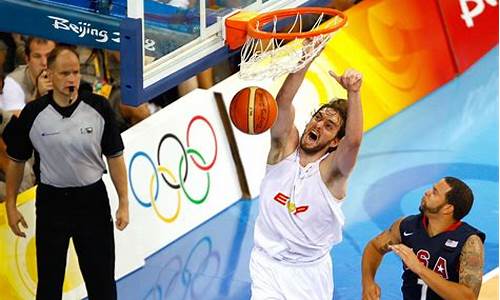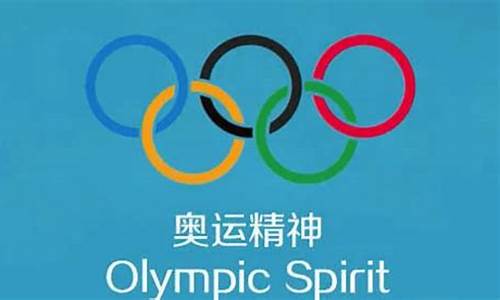1.什么是奥林匹克的象征,是奥运会的标志
2.奥运五环的意义?
3.奥林匹克的五环标志中每个颜色代表什么?
4.奥运五环的含义(哪种颜色代表哪一洲)英语
5.求一篇英语关于奥运五环的文章

蓝色代表欧洲;黑色代表非洲;红色代表美洲;**代表亚洲;绿色代表大洋洲。(1951年之前,官方手册曾指奥运五环分别象徵著五个大洲)
旗帜中互相连接的五色环仅代表世界五大洲之团结;但就个别而言:各大洲并非由特定色环所代表。
六种颜色(包括白底),代表着当时全世界各国国旗的颜色,如瑞典的蓝色、**,希腊的蓝色、白色,法国、英国、美国、德国、比利时、意大利及匈牙利的三旗,西班牙的**、红色,以及巴西、澳大利亚和日本,可说是一个真正的国际性的颜色兴标志。
扩展资料
奥林匹克标志,环的颜色自左至右为蓝、黄、黑、绿、红(也可用单色绘制),环从左到右互相套接,上面是蓝、黑、红环,下面是黄、绿环
五环-蓝、黄、绿、红和黑环,象征世界上承认奥林匹克运动,并准备参加奥林匹克竞赛的五大洲第六种颜色白色-旗帜的底色,意指所有国家都毫无例外地能在自己的旗帜下参加比赛。
圆环,体现了顾拜旦提出的可以吸收殖民地民族参加奥运会,为各民族间的和平事业服务的思想。代表着奥林匹克友谊的精神及全世界运动员之间的平等。
百度百科—奥林匹克环
什么是奥林匹克的象征,是奥运会的标志
1、**和蓝色代表瑞典。
2、蓝色和白色代表希腊、法国,英国、美国、德国、比利时、意大利、匈牙利的三色尽在其中。
3、**和红色代表西班牙,巴西、澳大利亚、日本、中国的颜色也包括在其中。
扩展资料:
1、奥运五环,五个环分别代表着五大洲, 奥运五环是一个整体,亚洲是**的,非洲是黑色的,欧洲是蓝色的,美洲是红色的,大洋洲是绿色的。
2、五环代表着世界五大洲,五色代表的是世界五大洲不同肤色的人民,五环连在一起代表着五大洲的人们能够友好相处。
3、环旗的诞生,1914年6月,国际奥委会在巴黎,召开第十六届全会,全会闭幕的日子--6月23日,正好是顾拜旦在巴黎索邦第一次召集奥林匹克会议建议振兴古代奥运会的20周年纪念日。
4、 19 年6 月,国际奥委会正式宣布了会旗和五环的含义,《根据奥林匹克宪章》,奥林匹克旗帜和5 个圆环的含义是象征五大洲的团结以及全世界运动员以公正、坦率的比赛和友好的精神在奥运会上相见。
参考资料:
百度百科-奥运五环
奥运五环的意义?
奥运五环是奥林匹克的象征,是奥运会的标志。
奥林匹克标志是由皮埃尔·德·顾拜旦先生于1913年构思设计的,是由《奥林匹克宪章》确定的,也被称为奥运五环标志,是世界范围内最为人们广泛认知的奥林匹克运动会标志。五环由5个奥林匹克环套接组成,有蓝、黄、黑、绿、红5种颜色。环从左到右互相套接,上面是蓝、黑、红环,下面是是黄、绿环。整个造形为一个底部小的规则梯形。
奥林匹克的五环标志中每个颜色代表什么?
奥运五环代表着五大洲(天蓝色代表欧洲,**代表亚洲,黑色代表非洲,草绿色代表澳洲,红色代表美洲)五个不同颜色的圆环连接在一起象征五大洲的团结互助、相亲相爱,象征世界五大洲不同肤色的人民能够友好相处,象征五大洲和全世界的运动员在奥运会上相聚一堂,充分体现了奥林匹克主义的内容,所有国家—所有民族的”奥林匹克大家庭“主题。
奥林匹克标志 (Olympic Logo /Symbole Olympique/Olympic Rings)是由皮埃尔·德·顾拜旦先生于1913年构思设计的,是由《奥林匹克宪章》确定的,也被称为奥运五环标志,它是世界范围内最为人们广泛认知的奥林匹克运动会标志。它由5个奥林匹克环套接组成,有蓝、黄、黑、绿、红5种颜色。环从左到右互相套接,上面是蓝、黑、红环,下面是是黄、绿环。整个造形为一个底部小的规则梯形。
奥林匹克五环标志,它由5个奥林匹克环套接组成,由蓝、黑、红、黄、绿5种颜色。环从左到右互相套接,上面是蓝、黑、红环,下面是是黄、绿环。整个造形为一个底部小的规则梯形。根据奥林匹克宪章,五环的含义不仅代表着五大洲全世界运动员在奥林匹克旗帜下的团结和友谊,同时强调着所有运动员应以公正、坦诚的运动精神在比赛场上相见。
奥运五环
奥运五环的含义(哪种颜色代表哪一洲)英语
奥林匹克的五环标志中每个颜色分别代表:
1. **代表亚洲;
2. 黑色代表非洲;
3. 蓝色代表欧洲;
4. 红色代表美洲;
5. 绿色代表大洋洲。
奥林匹克五环标志由皮埃尔·德·顾拜旦于1913年构思设计的。自1920年第七届安特卫普奥运会起,奥林匹克五环的蓝、黄、黑、绿和红色开始成为五大洲的象征,充分体现了奥林匹克主义的内容,“所有国家—所有民族”的“奥林匹克大家庭”主题。
求一篇英语关于奥运五环的文章
随着奥林匹克运动的发展,奥运五环已成为奥林匹克精神与文化的形象代表,国际奥委会选择五个相连的圆环作为其标志,并选择了相应的色彩。五个圆环代表五大洲:大洋洲、非洲、美洲、亚洲和欧洲。更深一层的意思是代表着全世界的运动员都聚集在奥林匹克运动会上。
朴素的白色背景寓意着和平。
它是1914年国际奥委会成立20周年庆祝大会时,由创始人古柏丁爵士所提。在听了顾拜旦对五环标志的说明后,会议确定将奥林匹克五环和奥林匹克旗作为奥林匹克标志。并制成会旗,于1920年第七届奥运会正式出现,开始使用至今。
五种颜色从左到右分别是:上方三个蓝、黑、红,下方黄和绿。这五种颜色都为各国国旗上的常见颜色,最初没有被赋予特殊含义。后来将5个不同颜色的圆环解释为五大洲的象征。
蓝 =欧洲(Europe) 黄 =亚洲( Asia) 黑 =非洲(Africa) 绿 =大洋州(Oceania)
红 =美洲( America)
奥运五环是国际奥委会的官方专用标志
1.The Olympic Games olympic flag is the management formulates in GuBaidan under. Five links be blue, black, are respectively red, yellow,the green, three links in on, two links in under, are linked together,tight association in same place. Does obeisance the day regarding thiplanation according to the attendance, five links "in the symbolicworld acknowledged the Olympics movement, and prepares to attend theOlympic Games the five continents, but the sixth kind of color white -flag bottom color, Italy refers to all countries all without a singleexception to be able to attend the competition in under the oneselfcountry flag". Afterwards some people explained that, IOC used atfirst blue, black, is red, yellow, the green took five links thecolors were because it could represent participates in the IOC allcountries national flag at that time the color. The 7th session ofOlympic Games got up from 1920, five links five kind of colorssymbolized the five continents: The blue color represents Europe,black Italy refers to Africa, red symbolizes the Americas, the yellowsymbolizes Asia, but the green explains makes Australia. In 13 theIOC published conference proceeding "the Olympics Forum" emphasizedthat, "The conference symbol and the meeting pennant five linksmeaning is symbolizing five continents' unity, world athlete by fair,frank competition and friendly spirit, meets at the Olympic Games."
奥运会五环旗是在顾拜旦主持下制定的。五环分别为蓝、黑、红、黄、绿色,三环在上,两环在下,环环相扣,紧紧联在一起。按照顾拜旦对此的解释,五环“象征世界上承认奥林匹克运动、并准备参加奥林匹克竞赛的五大洲,而第六种颜色白色——旗帜的底色,意指所有国家都毫无例外地能在自己国家的旗帜下参加比赛”。 后来有的人解释说,国际奥委会最初用蓝、黑、红、黄、绿色作为五环的颜色是因为它能代表当时参加国际奥委有国家国旗的颜色。自1920年第7届奥运会起,五环的五种颜色象征五大洲:蓝色代表欧洲,黑色意指非洲,红色象征美洲,**标志着亚洲,而绿色喻作澳洲。 13年国际奥委会会刊《奥林匹克论坛》则强调:“会徽和会旗的五环含义是象征着五大洲的团结,全世界的运动员以公正、坦率的比赛和友好的精神,在奥运会上相见。”
2.The flag features the emblem of the Olympic Games — five interlocking rings (blue, yellow, black, green, and red respectively) on a white field. This was originally designed in 1913 by Baron Pierre de Coubertin, the founder of the modern Olympic Games, but gained widespread popularity due to its promotion by Nazi Germany [1]. Upon its initial introduction, de Coubertin stated the following in the August, 1913 edition of Revue Olympique:
The emblem chosen to illustrate and represent the world Congress of 1914 ...: five intertwined rings in different colours - blue, yellow, black, green, red - are placed on the white field of the paper. These five rings represent the five parts of the world which now are won over to Olympism and willing to accept healthy competition.
In his article published in the "Olympic Revue" the official magazine of the International Olympic Committee in November 1992, the American historian Robert Barney explains that the idea of the interlaced rings came to Pierre of Coubertin when he was in charge of the USA ( Unión des Societes Fran?aise de Sports Athletiques): The emblem of the union was two interlaced rings (like the typical interlaced marriage rings) and originally the idea of Swiss psychiatrist Carl Jung because for him the ring meant continuity and the human being. [2]
“ The Olympic flag [...] has a white background, with five interlaced rings in the centre : blue, yellow, black, green and red [...] This design is symbolic ; it represents the five continents of the world, united by Olympism, while the six colours are those that ear on all the national flags of the world at the present time. ” (1931) Textes choisis II, p.470.
The 1914 Congress had to be suspended due to the outbreak of World War I, but the flag and emblem were later adopted. They would first officially debut at the VIIth Olympiad in Antwerp, Belgium in 1920.
The emblem's popularity and widespread use began during the lead-up to the 1936 Summer Olympics in Berlin. Carl Diem, president of the Organizing Committee of the 1936 Summer Olympics, wanted to hold a torchbearers' ceremony in the stadium at Delphi, site of the famous oracle, where the Pythian Games were also held. For this reason he ordered construction of a milestone with the Olympic rings carved in the sides, and that a torchbearer should carry the flame along with an escort of three others from there to Berlin. The ceremony was celebrated but the stone was never removed. Later, two British authors Lynn and Gray Poole when visiting Delphi in the late 1950?s saw the stone and reported in their "History of the Ancient Games" that the Olympic rings design came from ancient Greece. This has become known as "Carl Diem's Stone". [3] [4]. This created a myth that the symbol had an ancient Greek origin. The rings would subsequently be featured prominently in Nazi images and theatrics in 1936 as part of an effort to glorify the Third Reich and claim a noble and ancient lineage.
The current view of the International Olympic Committee is that the flag "reinforces the idea" that the Olympic Movement is international and welcomes all countries of the world to join. [5] Some literature, such as "The World Encyclopedia of Flags" by Alfred Znamierowski, state that each ring represent the five continents. Using this scheme, the Americas are viewed as a single continent, and Antarctica is omitted.
As can be read in the Olympic Charter, the Olympic symbol represents the union of the five continents and the meeting of athletes from throughout the world at the Olympic Games. However, no continent is represented by any specific ring. Though colourful explanations about the symbolism of the coloured rings exist, the only connection between the rings and the continents is that the number five refers to the number of continents.








